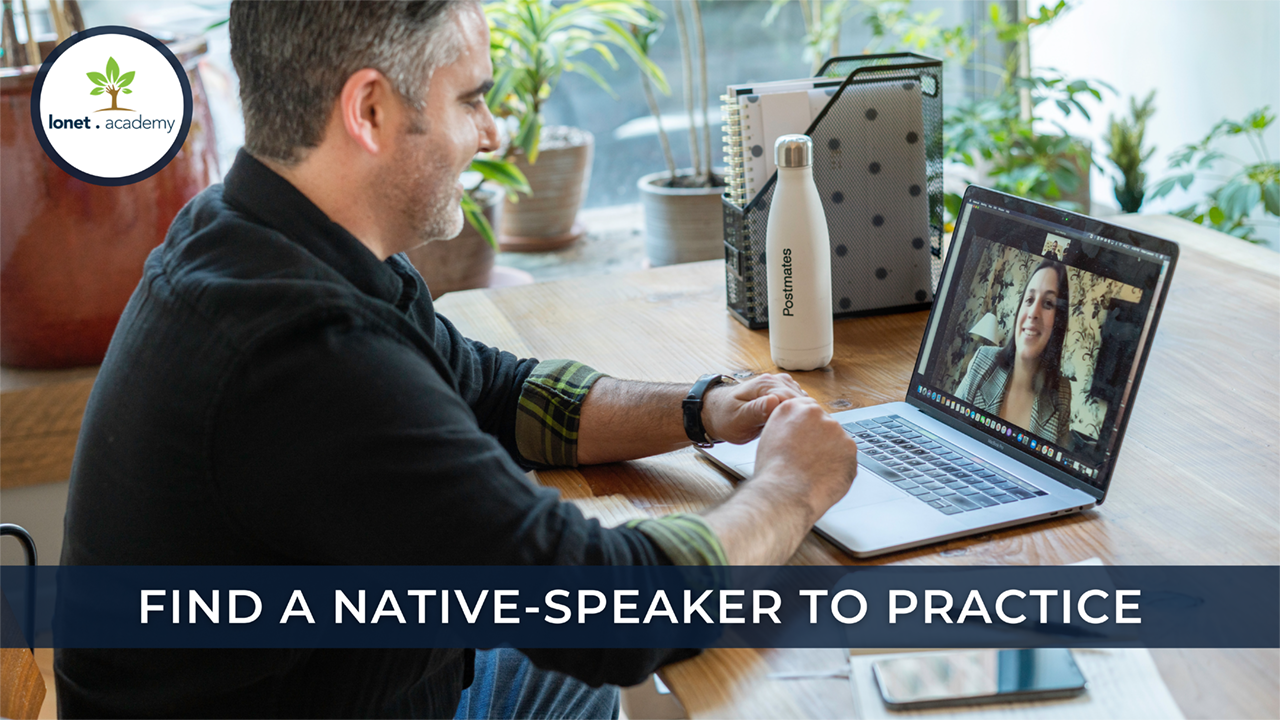
How To Learn A Language Fast
Efficient Ways To Learn A New Language Quickly. The Secret Of Learning a Foreign Language Quickly Lies In Combination Of Teaching and Learning Methods!
Learning an additional language is one of the best skills you can acquire in your lifetime. Apart from the benefits of communicating with friends from all over the world, it can also open new career opportunities for you and makes travelling easier and more fulfilling. The ideal time to learn a new language is during childhood when the brain is most receptive to new information, but that’s not to say that you can’t learn a language as an adult. In fact, learning a new language as an adult can help keep your brain healthy. You will exercise parts of the brain that may otherwise remain dormant and this can help with memory and strengthening your ability to focus and adapt. Once you’ve decided which language you want to learn, you’re probably going to want to know how to learn languages fast. So, we’ve put together some tips to learn a new language.
1. Combine self-study resources with authentic on-line language apps and courses
The first and most important thing to remember is that different people learn in different ways. This means that there is no single method that is guaranteed to work for everyone. There is, however, a guaranteed way to slow the learning process, and that is to stick to just one method of learning.
There are numerous on-line resources that can provide you with self-study material and tools. Most of them are available as simple to use applications and are available free at VidaLingua, or Duolingo.
Downloading apps to your smartphone allows you to take your language resources with you wherever you go. So, when you’re waiting for a bus, sitting on a train or sipping coffee, you can be honing your language skills too.
There are also a whole host of other online resources to help you learn languages fast. YouTube has tutorials that let you hear the language spoken and to practice your pronunciation – or you might just want to watch cartoons or children’s programs in your chosen language to get you used to the way it sounds. You might be surprised at how many words and phrases you can pick up in just a few days.
But self-study alone isn’t enough to learn a language quickly.

So, we recommend you mix your self-teaching methods and online resources with authentic conversations to build your speaking and listening skills.
In order to improve your language skills quickly, you can take one-on-one classes with a language tutor online. Private language classes will boost your chances of picking up the basic words faster than you would do it by yourself and prevent you from learning things incorrectly. A tutor will pick up on your mistakes and structure your learning so that you increase your knowledge methodically in the way that you learn best. Nowadays, there are many platforms where you can find good quality online language tutors to help you learn languages fast. There are selected language tutors online, available on platforms similar to Lonet.Academy.
On the other hand, if you don’t feel confident enough yet for an intensive course with a native tutor, you can always find a professional online language tutor who speaks your native language as well. Many students feel more confident learning a language with a tutor who also understands their native language. Choose one of many online language tutors available and you can get plenty of tips from them on how to learn a language fast.
Language tutoring platforms offer:
- A variety of languages to learn
- A good choice of tutors with whom to learn a language
- Easy booking systems
- Online payment methods
- Flexible schedules and easy-to-use tools that are very convenient for languages learners and teachers
2. Combine authentic and controlled practice with a native professional tutor
The internet is a fantastic resource for language learners. Apart from the learning resources mentioned above, there are so many opportunities to find language partners with whom you can practice your speaking and listening skills. You could join a targeted language community on Facebook of likeminded people. These could be fellow students or native speakers. Hearing native speakers will give you a true grasp of how the language sounds and help develop your speaking skills while also exposing you to new words and phrases that may not come up in a formal learning environment. Chatting with other students will
Alternatively, you might want to find “language exchange” partners to chat to. These are native speakers of the language you’re learning who also want to learn your language. Be prepared to devote time and attention not only to learning the language, but also to “teaching” your partner. This kind of approach to language practice is incredibly authentic and is an excellent way to break your speaking barriers and experience the role of a language tutor.
Where to find a native-speaker?

Often, communication is via email, Whatsapp or other social media, it’s good to get into the habit of chatting in person on Skype or Zoom regularly too. This will introduce you to new words and phrases, and some colloquialisms. This kind of organic learning is invaluable in getting to grips with the reality of language use, but it can veer away from important grammar rules and so should ideally be combined with online language tutor sessions. The two will complement each other and enhance your language learning to help you learn the language fast.
A native language tutor will equip you with the best skills to enhance your proficiency in your new language and you will immediately notice the difference between learning with a native speaker and a non-native speaker. Remember – speaking a language doesn’t necessarily mean you can teach the language!
Even if you are not a beginner and can already communicate in the language, practicing with a native tutor is priceless as they will guide you and make sure you build your knowledge and skills in the correct fashion. A physical session with a native speaker can be quite expensive and have an impact on your time as you have to travel to the venue. A more affordable method is to meet your tutor online. Not only is it cheaper and easier, you also open up a far wider pool of potential tutors as you are not reliant on just those who live or work nearby.
The pandemic has shown us all just how useful and easy online communication can be and more and more students are turning to online language tutors at Lonet.Academy who provide lessons via online classrooms that are very easy to access and use. Virtual classrooms are convenient for both teachers and students.
3. Read a lot
You can learn a language by reading in that language. The more you read, the quicker you learn! There is an enormous amount of content nowadays everywhere you go, either online or on paper, and if you want to use this method you need to be disciplined and make sure you read something every day. Start with daily newspapers (either online or in print) and tweets or blogs. As you become more confident, move on to books written by native writers. You can choose any topic that you are into and your interest will help motivate you to keep going.
Check the Parallel Books app available on iPad, iPhone and iPod touch that has been designed for people who learn one of the following languages: English, German, French, Spanish, Portuguese, Russian, Italian, Dutch, Swedish, Esperanto, Korean and some more. Currently, all the books are free.
When you read something that excites and interests you, your brain grasps the information and absorbs the content and ideas more easily and quickly, and you retain it for longer. This is why reading is one method of how to learn a language faster.
For instance…. Are you learning Russian? Quite a challenging task!
Interested in cars and racing sports?
Then, read thematic magazines about the latest news in racing which are written in Russian! See how it works? You will see how interesting and useful the learning becomes when you acquire language through content that is exciting for you. Then, go ahead and practice it with your private Russian native tutor by discussing that specific topic. This way, learning a language becomes far more fun and much more productive.
Give yourself time to absorb the language by listening to radio programs or Podcasts in the new language. Reading a book aloud or watching movies with subtitles in your chosen language will help you learn new words while reinforcing the old ones at the same time.
Try not to concentrate too hard on understanding the language. Instead, you should let your brain develop the pattern of the language through regular exposure to it. Surround yourself with music and songs in the language you are learning and sing them. Learn a language singing!
There is much music in any language, not just grammatical patterns. Remember that!
By combining reading and listening to content that interests you, you will never get bored while you learn your new language.

4. Set yourself learning goals
Keeping motivated when you don’t have targets can be tricky. How do you know how well you are doing or whether you’re making the right amount of progress? An online language tutor can help you create realistic goals based on your current level of ability and learning time available.
The first step to learning a new language fast is to set goals for what you want to achieve. When you think about it, this makes a lot of sense. If you don’t set goals, how can you know what you want to achieve and measure whether you have achieved it?
Research shows that students who set themselves challenging but attainable goals are most likely to achieve success in learning a language fast.
Be specific and concentrate on tangible outcomes. Be detailed when setting your goals. Focus on what you want to learn but don’t shy away from grammar and sentence structure as these are fundamental to your success.
Set short-term goals. Your long-term goal is to be fluent in your new language, but you never really stop learning – and fluency can take years – so be sure to break your overall aim down into achievable chunks that you can tick off as evidence of your progress. Set monthly and weekly goals and give yourself a daily schedule to help you achieve them.
Write down your goals and display them somewhere prominent such as on your fridge door or bathroom mirror. Or why not set a reminder on your phone?
5. Be smart
Use your smartphone to access the most up to date learning platforms. Electronic flashcards are a great way to choose the categories of words that interest you most or that you feel you need to know as a priority, and you can test yourself regularly to check how well you’re doing.
Make sure you guess the meaning of a word before turning over the card. Flashcards are designed to test your memory and you will quickly come to make associations and embed the words so they become second nature. If you don’t know, guess. You might find interesting connections that broaden your knowledge of the language as a whole.
SRS (spaced repetition software) programs generate flashcards using algorithms to mix up the words you view and make sure you spend more time studying the words and phrases you find most difficult. This prevents the temptation to focus on what is easier and helps you to learn a language faster.
Find a teacher, who will help you learn languages fast on Lonet.Academy!
Learn how it works or watch a video “How to register at Lonet.Academy and start learning a new language“.